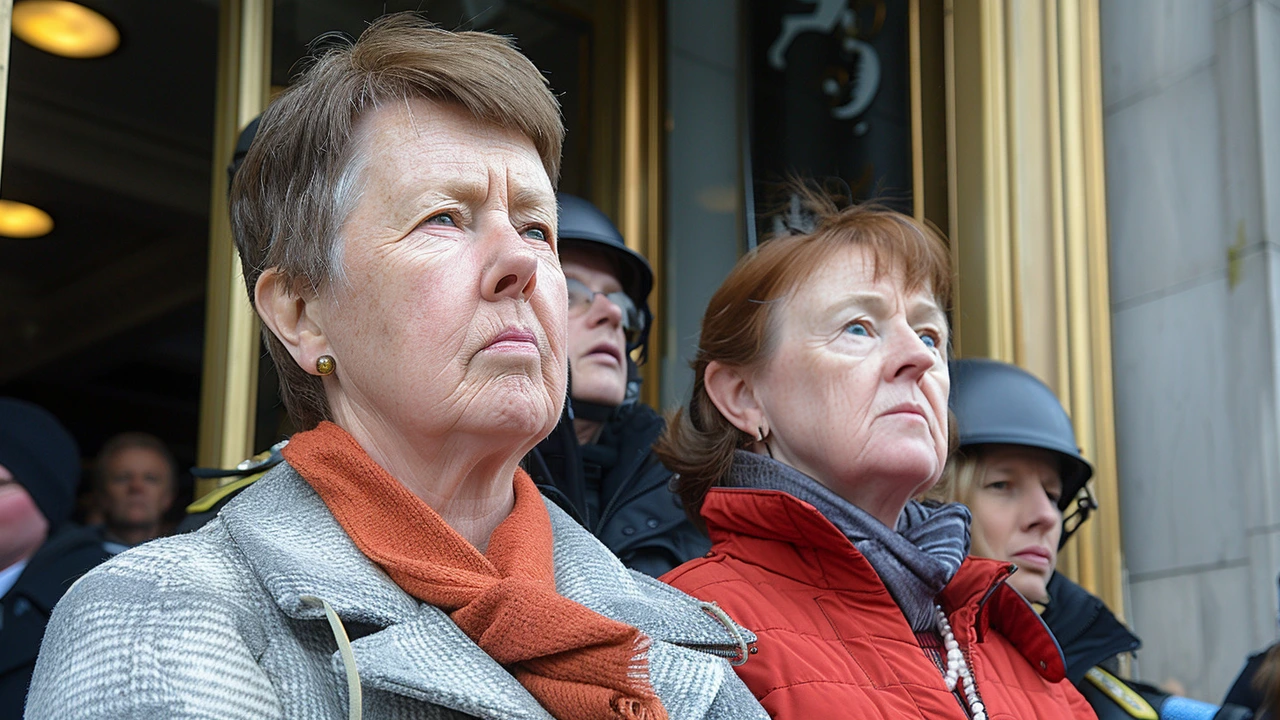Paula Vennells Defends Post Office Tenure amid Sub-Postmasters’ Inquiry
In a gripping and highly emotional appearance, Paula Vennells, the former CEO of the Post Office, took to the stand in a public inquiry to address accusations surrounding her role in a scandal that saw numerous sub-postmasters wrongfully convicted. The fallout from these wrongful convictions has left many families shattered, driving a deep call for accountability and justice.
A Tearful Testimony
Throughout her testimony, Ms. Vennells appeared visibly shaken and, at times, was moved to tears. Her defense revolved around an apology to the affected sub-postmasters and their families—a gesture indicating regret but leading to mixed reactions from both the public and those closely involved. Ms. Vennells asserted that during her 12-year tenure, she was unaware of documents that would have revealed the core issues that led to the wrongful convictions. She painted a picture of herself as being 'too trusting' of her associates and subordinates, attributing her lack of decisive action to this misplaced trust.
Skepticism and Scrutiny
The inquiry room was thick with skepticism, especially when Ms. Vennells faced tough questioning from the inquiry's lead counsel, Jason Beer KC. Mr. Beer pressed her relentlessly on various issues, digging into the supposed unawareness and the organizational oversights that failed to protect the sub-postmasters. One particularly poignant moment came when the subject of Martin Griffiths, a sub-postmaster who reportedly took his own life due to the immense stress linked to his wrongful conviction, was broached. Initially, Ms. Vennells attempted to attribute Mr. Griffiths' suicide to mental health issues, but this explanation did little to deflect the probing questions about her and her team's responsibility in the matter.
The Alleged Conspiracy
One of the most compelling elements of Ms. Vennells' defense—or lack thereof—centers around whether there was a concerted effort to withhold key documents from her. Jason Beer KC questioned her extensively about whether she believed there had been a conspiracy to deny her access to critical information. Ms. Vennells downplayed the notion, but her responses lacked the conviction that might have reassured those watching.
Impact on Sub-Postmasters
The ramifications of the wrongful convictions have been devastating. Many sub-postmasters faced not only the loss of their livelihoods but also the tarnishing of their reputations, financial ruin, and severe psychological stress. The impact on their families has been equally severe, creating a lasting shadow over the lives of many. Ms. Vennells' testimony did little to assuage the pain and anger felt by these individuals, as her portrayal of being 'too trusting' struck many as an insufficient explanation.
An Ongoing Inquiry
As the inquiry continues, there remains a palpable sense of anticipation and tension. Legal experts suggest that the outcomes of this inquiry could lead to significant legal consequences for Ms. Vennells and potentially others within the Post Office's higher echelons. The pursuit of justice for the sub-postmasters continues to be the headline of this ongoing saga, with public opinion divided on Ms. Vennells' responsibility and accountability.
The inquiry is far from over, and with each passing day, more layers of this complex story are expected to unravel. What remains consistent is the deep-seated need for a sense of closure and rectification—a restoration of justice for the wrongfully convicted sub-postmasters and their families.
Conclusion
In summary, the public inquiry into Paula Vennells' tenure as CEO of the Post Office reveals a deeply complex and emotional narrative. Ms. Vennells' defense, characterized by tears and claims of ignorance, has not managed to fully convince the public or the legal counsel. As the inquiry proceeds, the quest for accountability and justice continues to shed light on the systemic failures and personal tragedies brought forth by this scandal.

Comments